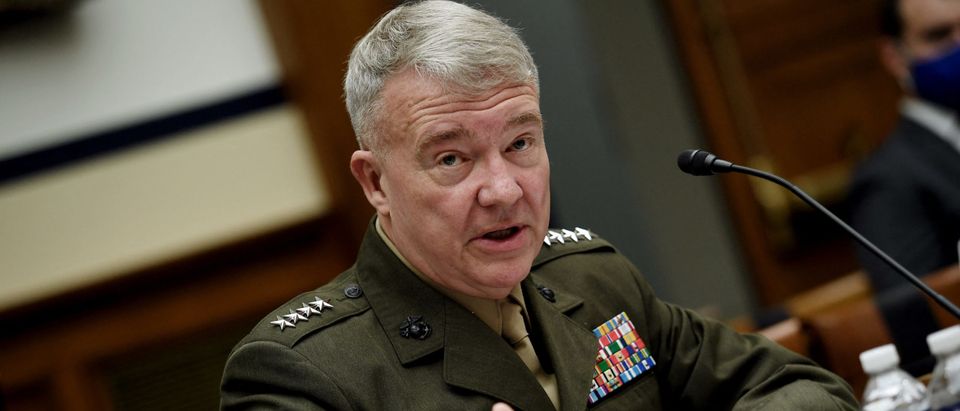Gen. Kenneth McKenzie said at a hearing Wednesday that the U.S. military knew within four or five hours that an Aug. 29 drone strike in Kabul “hit civilians,” even though the Pentagon didn’t acknowledge that civilians were killed until more than two weeks later.
“We knew the strike hit civilians within four or five hours after the strike occurred and U.S. Central Command released a press release saying that,” McKenzie said in response to a question from Republican Mississippi Rep. Trent Kelly during the House Armed Services Committee hearing. “We did not know, though, that the target of the strike was in fact a mistake until some time later. Took us a few days to run that down.”
WATCH:
Joint Chiefs Chairman Gen. Mark Milley and Defense Secretary Lloyd Austin both told the House Armed Services Committee they knew within “several hours” that the drone strike killed civilians.
U.S. Central Command (CENTCOM) initially claimed in an Aug. 29 press release that the drone strike “eliminat[ed] an imminent ISIS-K threat to Hamid Karzai International Airport” with “no indications” of civilian casualties at the time. Milley on Sept. 1 described the strike as “righteous” and said “procedures were correctly followed.”
But an investigation published by the New York Times on Sept. 10 included exclusive security camera footage and eyewitness accounts, corroborating reports that the U.S. military didn’t know “whom it was hitting” and in fact killed Afghan civilians.
McKenzie admitted on Sept. 17 — more than two weeks after the strike — that it killed “as many as ten civilians, including up to seven children,” and no ISIS-K members. Pentagon press secretary John Kirby announced Sept. 20 that an internal investigation would be conducted. (RELATED: Gen. McKenzie Undercuts Biden Statements On Afghanistan Withdrawal)
In his opening remarks during Wednesday’s hearing, McKenzie told the House Armed Services Committee that the strike “was a mistake” and he “take[s] full responsibility.” But he defended CENTCOM’s initial assessment, stating that the decision to launch the strike was “based on our intelligence read of the situation on the ground.”


